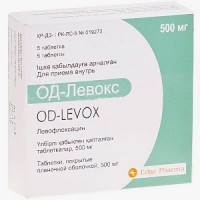Azithromycin 250 mg (6 capsules)
- $10.00
What is Azithromycin?
Azithromycin is an antibiotic used to treat a variety of bacterial infections. It belongs to the macrolide class and is effective against many types of bacteria. It is commonly prescribed for respiratory tract infections, skin infections, soft tissue infections, and certain urinary tract infections.
What forms and dosages are available for Azithromycin?
Azithromycin is available in capsule form with a dosage of 250 mg. It is usually taken orally, either one hour before meals or two hours after meals. For adults and children weighing over 45 kg, the typical dosage is 1500 mg, taken over three days as 500 mg once daily.
What conditions does Azithromycin treat?
Azithromycin is used to treat infectious diseases caused by bacteria sensitive to the medication. These include:
- Infections of the upper respiratory tract and ENT organs, such as sinusitis, tonsillitis, and otitis media.
- Infections of the lower respiratory tract, including bacterial and atypical pneumonias, and bronchitis.
- Skin and soft tissue infections.
- Uncomplicated urinary tract infections caused by Chlamydia trachomatis and Neisseria gonorrhoeae.
What are the contraindications for Azithromycin?
Azithromycin should not be used if you have:
- Hypersensitivity to azithromycin, erythromycin, macrolide, or ketolide antibiotics.
- Severe liver dysfunction.
- Pregnancy and breastfeeding periods.
- Children weighing less than 45 kg.
What precautions should be considered?
Azithromycin should be used with caution in patients with cardiovascular diseases, as it can cause arrhythmia and prolong the QT interval. It should also be used cautiously in children with severe liver or kidney dysfunctions.
What medications interact with Azithromycin?
Azithromycin interacts with various medications, such as:
- Antacids reduce the peak concentration of azithromycin in plasma by 25%.
- Concurrent use with digoxin can increase the serum concentration of digoxin.
- Co-administration with atorvastatin may cause rhabdomyolysis.
- When taken with cyclosporine, monitoring and dose adjustment of cyclosporine are required.
How should Azithromycin be taken?
Azithromycin should be taken orally, either one hour before meals or two hours after meals. The usual dose for adults and children weighing over 45 kg is 1500 mg, taken over three days as 500 mg once daily. For treating uncomplicated genital infections, a single dose of 1000 mg is prescribed.
What should be done in case of overdose?
Symptoms of azithromycin overdose include temporary hearing loss, nausea, vomiting, and diarrhea. In the event of an overdose, the medication should be discontinued, and medical advice should be sought for symptomatic treatment.
What are the possible side effects of Azithromycin?
Possible side effects of azithromycin include:
- Very common: diarrhea, abdominal pain, nausea.
- Common: headache, dizziness, vomiting, dyspepsia.
- Uncommon: leukopenia, neutropenia, hypersensitivity, palpitations.
- Unknown: anaphylactic reaction, liver failure, myasthenia gravis.
How should Azithromycin be stored?
Azithromycin should be stored in a dry place, protected from light, at a temperature not exceeding 25°C (77°F). It should be kept out of reach of children. The shelf life of azithromycin is 3 years. Do not use the medication after the expiration date.








